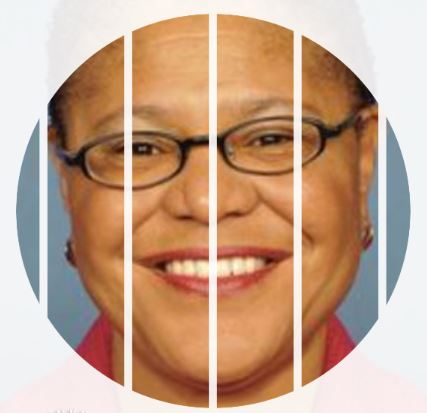Ethiopians in the American Melting Pot
![]()
![]()

In Shakespeare’s play “Julius Caesar,” Brutus hesitatingly joins an assassination plot hatched by conniving Roman senators afraid to lose their power if Caesar declared himself Emperor and became dictator of the Roman republic. Brutus was a dear, trusted and loyal friend of Caesar, but he was had, hoodwinked and bamboozled by Caesar’s senatorial enemies who…
The Sinner-Saint who never stopped trying Nelson Rolihlahla Mandela finally finished his long walk to freedom in the last month of the Year 2013. The sun cast its last rays on the man who lifted South Africa from the darkness of apartheid. Nelson Mandela’s shadow is all we have left. We must now look to that…

I do not believe this country belongs to a single bully (gulbetegna) [thug]. This land was built by my father and mother, grand-parents and great grandparents. No one can force me into exile. No one can intimidate me and take away my rights as an Ethiopian. I won’t let it happen. Let me make it…

Author’s Note: The irony of ironies is that Barack Obama and I now share one thing in common. The hate-mongering birthers in America sought to cast doubt on Obama’s identity and birthplace to delegitimize his presidency by spinning a conspiracy theory that he was born in Kenya. The T-TPLF hate-mongers are now spinning a birther…
Author’s note: As I was archiving my commentaries from years past for public access on my website (almariam.com), I discovered commentaries and articles I had written in the print edition of Ethiopian Review Magazine (ERM) before that publication went online in 2000. I had vague recollection of various articles I had written on Ethiopia and the…
“Crown Thy Good With Brotherhood From Sea to Shining Sea”! Dear President Joe Biden and Vice President Kamala Harris: Congratulations on your inauguration! I write to ask you to MAKE AMERICA BEAUTIFUL AGAIN in the next four years. I love Ray Charles’ soulful rendition of America the Beautiful performed in the shadow of the Capitol….

In Shakespeare’s play “Julius Caesar,” Brutus hesitatingly joins an assassination plot hatched by conniving Roman senators afraid to lose their power if Caesar declared himself Emperor and became dictator of the Roman republic. Brutus was a dear, trusted and loyal friend of Caesar, but he was had, hoodwinked and bamboozled by Caesar’s senatorial enemies who…
The Sinner-Saint who never stopped trying Nelson Rolihlahla Mandela finally finished his long walk to freedom in the last month of the Year 2013. The sun cast its last rays on the man who lifted South Africa from the darkness of apartheid. Nelson Mandela’s shadow is all we have left. We must now look to that…

I do not believe this country belongs to a single bully (gulbetegna) [thug]. This land was built by my father and mother, grand-parents and great grandparents. No one can force me into exile. No one can intimidate me and take away my rights as an Ethiopian. I won’t let it happen. Let me make it…

Author’s Note: The irony of ironies is that Barack Obama and I now share one thing in common. The hate-mongering birthers in America sought to cast doubt on Obama’s identity and birthplace to delegitimize his presidency by spinning a conspiracy theory that he was born in Kenya. The T-TPLF hate-mongers are now spinning a birther…
Author’s note: As I was archiving my commentaries from years past for public access on my website (almariam.com), I discovered commentaries and articles I had written in the print edition of Ethiopian Review Magazine (ERM) before that publication went online in 2000. I had vague recollection of various articles I had written on Ethiopia and the…
“Crown Thy Good With Brotherhood From Sea to Shining Sea”! Dear President Joe Biden and Vice President Kamala Harris: Congratulations on your inauguration! I write to ask you to MAKE AMERICA BEAUTIFUL AGAIN in the next four years. I love Ray Charles’ soulful rendition of America the Beautiful performed in the shadow of the Capitol….

In Shakespeare’s play “Julius Caesar,” Brutus hesitatingly joins an assassination plot hatched by conniving Roman senators afraid to lose their power if Caesar declared himself Emperor and became dictator of the Roman republic. Brutus was a dear, trusted and loyal friend of Caesar, but he was had, hoodwinked and bamboozled by Caesar’s senatorial enemies who…
The Sinner-Saint who never stopped trying Nelson Rolihlahla Mandela finally finished his long walk to freedom in the last month of the Year 2013. The sun cast its last rays on the man who lifted South Africa from the darkness of apartheid. Nelson Mandela’s shadow is all we have left. We must now look to that…

I do not believe this country belongs to a single bully (gulbetegna) [thug]. This land was built by my father and mother, grand-parents and great grandparents. No one can force me into exile. No one can intimidate me and take away my rights as an Ethiopian. I won’t let it happen. Let me make it…

Author’s Note: The irony of ironies is that Barack Obama and I now share one thing in common. The hate-mongering birthers in America sought to cast doubt on Obama’s identity and birthplace to delegitimize his presidency by spinning a conspiracy theory that he was born in Kenya. The T-TPLF hate-mongers are now spinning a birther…
Author’s note: As I was archiving my commentaries from years past for public access on my website (almariam.com), I discovered commentaries and articles I had written in the print edition of Ethiopian Review Magazine (ERM) before that publication went online in 2000. I had vague recollection of various articles I had written on Ethiopia and the…
“Crown Thy Good With Brotherhood From Sea to Shining Sea”! Dear President Joe Biden and Vice President Kamala Harris: Congratulations on your inauguration! I write to ask you to MAKE AMERICA BEAUTIFUL AGAIN in the next four years. I love Ray Charles’ soulful rendition of America the Beautiful performed in the shadow of the Capitol….